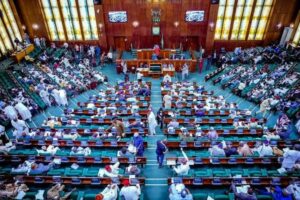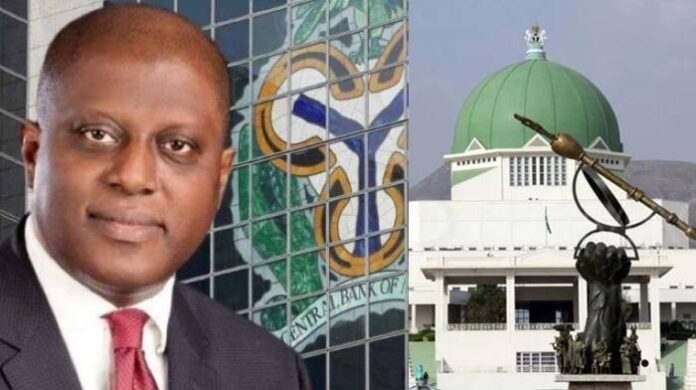The minority group in the House of Representatives walked out in protest on Wednesday when a bill was introduced to change the total amount of loans from the Central Bank of Nigeria (CBN) to the Federal Government.
The proposed amendment aimed to increase the limit from 5% to a maximum of 10%. This move sparked significant controversy and led to an intense session in the House.

The opposition members, representing various parties, expressed their strong dissatisfaction with the bill. The lawmakers from the All Progressives Congress (APC) had pushed for the change in the CBN Act, which would allow the Federal Government to borrow more through the CBN’s Ways and Means facility. Ways and Means loans are short-term financing options that the CBN provides to help the Federal Government manage budget shortfalls and cover immediate financial needs.
The Minority Leader, Kingsley Chinda, voiced his opposition to the amendment. He argued passionately that increasing the loan limit to 10% would undermine the authority of the National Assembly. Chinda emphasized that such a move would grant the CBN too much discretionary power over the nation’s finances, potentially leading to unchecked borrowing and fiscal irresponsibility. He proposed an alternative solution: reducing the loan limit to 2% instead of increasing it.
Chinda’s objections were not enough to sway the majority of lawmakers, and the amendment was put to a vote. Despite the minority group’s efforts to block the bill, it was passed. The result of the vote triggered a dramatic response from the opposition members. They stood up and walked out of the chamber in a clear act of protest. Their walkout was a symbolic gesture meant to demonstrate their disapproval and highlight the seriousness of their concerns.
However, the story did not end there. After their initial walkout, the minority members returned to the chamber. They continued to voice their opposition to the amendment, engaging in further debates and discussions. Their return underscored their commitment to challenging the bill and ensuring their perspectives were heard.
The opposition in the House is composed of members from several parties, including the Peoples Democratic Party (PDP), the Labour Party (LP), the New Nigeria People’s Party (NNPP), and the All Progressives Grand Alliance (APGA), among others. These parties collectively represent a significant portion of the electorate and have been vocal in their criticism of policies they believe are not in the nation’s best interest.
The walkout by the minority group in the House of Representatives on Wednesday was a response to a contentious bill aimed at increasing the loan limit from the Central Bank of Nigeria to the Federal Government.
The opposition, led by Minority Leader Kingsley Chinda, argued that the amendment would erode the power of the National Assembly and give excessive control to the CBN. Despite their protests, the bill was passed, prompting the minority members to stage a walkout and later return to continue their opposition.




